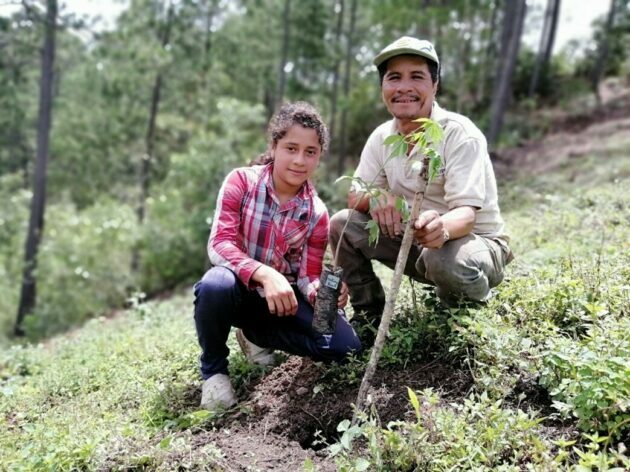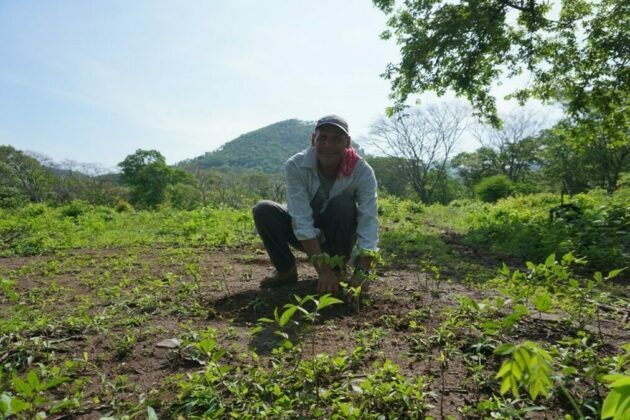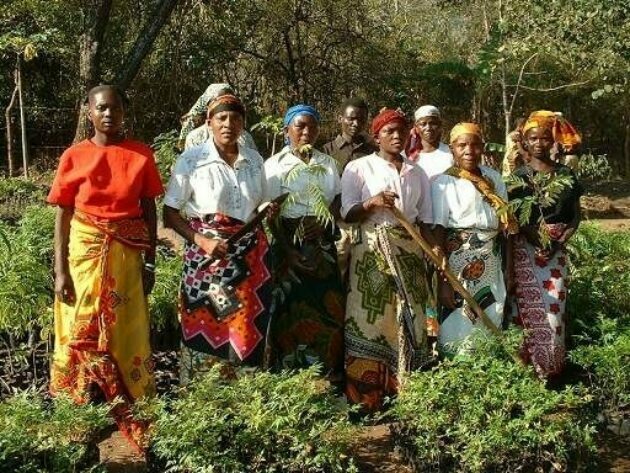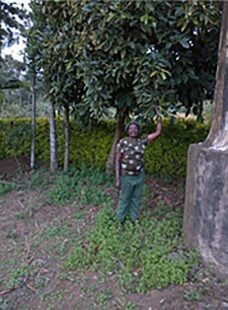Natural Capital Partners is working with Microsoft to support two of the highest quality carbon removal projects in the world – designed and delivered in close collaboration with local communities to ensure they deliver not only for the climate, but for people too.
Natural Capital Partners is working with Microsoft to support two of the highest quality carbon removal projects in the world – designed and delivered in close collaboration with local communities to ensure they deliver not only for the climate, but for people too.
We have a long history of working with Microsoft, having collaborated with them since 2012 when the company first achieved carbon neutrality, offsetting its Scope 1, Scope 2, and business air travel emissions through high quality carbon projects around the world. Over the past decade, we have flexed our approach to match Microsoft’s increasing ambition, which culminated in a sector-leading target to be carbon negative by 2030.
“We value our long-term relationship with Natural Capital Partners and in particular the collaborative way they work with project implementation partners. Their due diligence process coupled with on the ground project expertise built over many years helps us select and support the highest quality carbon removal projects.”
Elizabeth Willmott, Carbon Program Director at Microsoft
1. The CommuniTree Reforestation Project, Nicaragua
This project is a close partnership between Natural Capital Partners and the Arbor Day Foundation. Managed on the ground by Taking Root, it is the largest reforestation initiative in Nicaragua.
The project uses reforestation to create long-term income opportunities for farmers who are most vulnerable to the effects of climate change.

Farmers can receive direct payments for growing the forest over a 10-year period, creating new sources of income for families.
It helps farming families to grow native tree species and build forest-based enterprises on underused farmland that has been historically deforested, creating sustainable livelihoods for the short and long term.
For reforestation to be a successful solution to climate change, trees must benefit and be valuable to local communities for the long term. The project is specifically designed so that the forests improve the lives of Nicaraguan farmers traditionally earning less than $2 per day. It does this by:
Creating new forms of income for farmers including:
Generating additional benefits for farmers and their communities to prosper, including:
The project team is made up of cross-disciplinary local and international experts in forestry, business, smallholder economics, computer science, and remote sensing, and the project has been used as a best practice reforestation model by organizations including the United Nations and European Union.
Watch this video, to see how the project is transforming life for local farmers, the community and the environment.
The results

Farmer Mario Calix Hernandez planting trees
2. The Kenya Community Reforestation project
A century ago, this landscape was dense forest. Now, local farmers are counteracting the devastating effects of deforestation - erosion, famine, droughts and floods by planting millions of trees.

Under traditional practices, farmers clear trees to increase available agricultural land. This project organizes hundreds of small community-based, tree-planting initiatives on land owned by smallholder and subsistence farmers.
This helps to break the local cycle of deforestation, drought, and famine by reducing erosion, stabilizing and enriching the soil, and providing shade. Once mature, the trees provide other benefits, including edible fruits and nuts, medicines, windbreaks, firewood, and timber. In addition, it improves lives for local people through education and training and additional sources of income.
Case study: Anastasi Ngugi
On her small farm, nestled into the side of Mount Kenya, Anastasia Ngugi has been planting tea and coffee for decades; since 2016, she has also been planting trees. Her farm is small, and mostly dedicated to her main crops, so she started planting grevillea, macadamia, and avocado trees around the boundary.

Anastasia Ngugi
Farmers like Anastasia plant trees to receive carbon income. In just a couple of years, Anastasia has seen improved crop yields, carbon income and access to an improved cookstove. She now uses less fertilizer and firewood, inhales less smoke while cooking, and lives on a more beautiful and productive piece of land. She’s accomplished this all while becoming a more engaged, vibrant, and connected member of her community.
"…earlier on I was not as vibrant as I am now. I love making friends and not just friends but those that are very enthusiastic [about] tree planting and working together to improve this climate of ours."
The results
To date the 9,000 groups have planted over nine million trees, helping achieve Kenya’s goal of increasing forest cover from 7.4% to 10% of total land area.
You can see afforestation in action in this video showing the projects impressive growth around Mount Kenya.
It’s exciting to be working alongside a company like Microsoft who are really raising the bar on climate ambition and setting the standard for others to follow. At the same time as investing in carbon removal projects, they are driving carbon reductions throughout their organisation and supply chains. Working closely with them allows us not only to have positive impact through their direct actions, but to share their learnings and experience to help others deliver maximum positive climate impact.
Saskia Feast, Managing Director of Global Clients Solutions at Natural Capital Partners and ClimateCare